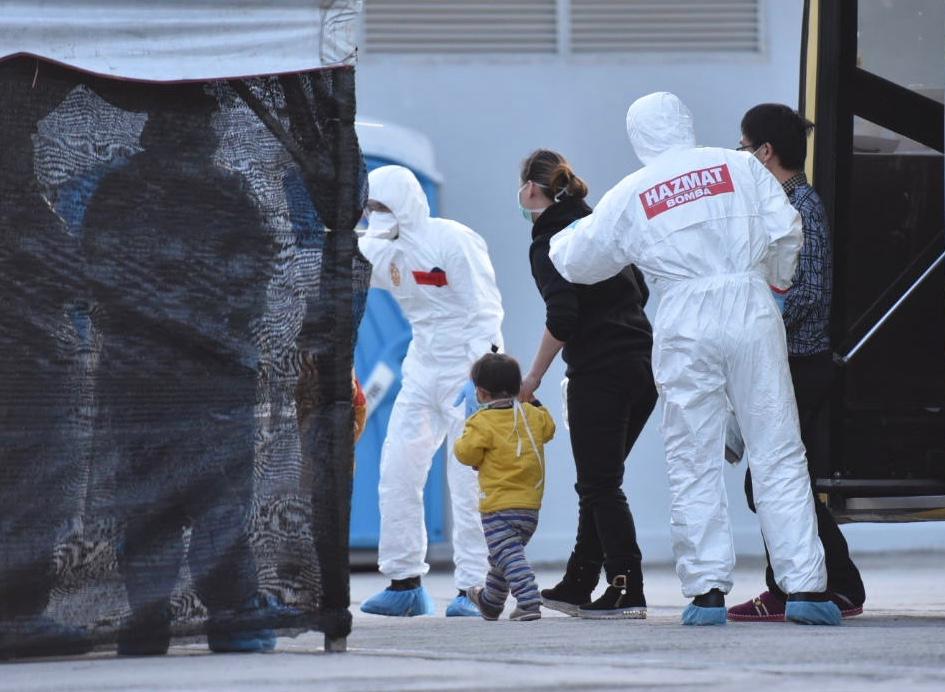KUALA LUMPUR, May 15 — The US Centres for Disease Control and Prevention (CDC) has issued a guide to help physicians identify cases of a rare and potentially fatal coronavirus-related syndrome in children.
The issuance of the guideline came after several reports of this rare syndrome surfaced in France, Italy, Spain, Britain, and more than 100 cases in the state of New York, as cited by Reuters.
These reports alarmed authorities as Covid-19 seems to pose a greater risk to children than what was understood. The coronavirus is seen to have mostly affected the elderly population and those with chronic health conditions thus far, according to Reuters.
The rare Covid-19 related syndrome is now officially named Multisystem Inflammatory Syndrome in Children (MIS-C) by the CDC. Symptoms presented by this syndrome are similar to those of toxic shock and Kawasaki disease, which includes fever, rashes, swollen glands, and heart inflammation in severe cases.
The CDC provided a case definition for MIS-C in a health advisory released Thursday:
- An individual under 21 years of age presenting with fever, laboratory evidence of inflammation, and evidence of clinically severe illness requiring hospitalisation, with multisystem (defined as more than or equal to two organs) involvement; AND
- No alternative plausible diagnoses; AND
- Positive for current or recent Covid-19 infection by the reverse-transcriptase polymerase chain reaction (rt-PCR) test, serology, or antigen test; or Covid-19 exposure within the past four weeks prior to the onset of symptoms.
The rt-PCR test is a diagnostic test that uses a sample swabbed from an individual’s nose or throat, which is then sent to a laboratory for evaluation, and test results are usually available within 24 to 48 hours. Serology or antibody test is a blood test that looks for antibodies towards the coronavirus and is not useful for diagnosis. Antigen tests identify viruses in nose and throat secretions and can also detect active cases of Covid-19.
CDC’s guidance came after reports of the syndrome were made by physicians in northern Italy and also the United Kingdom (UK), both published in the journal The Lancet.
The General Paediatric Unit of Hospital Papa Giovanni XXII in Bergamo, Italy, admitted 10 children with the syndrome, including eight who tested positive for the coronavirus antibodies. Between January 1, 2015, and April 20, 2020, the doctors there had only seen a total of 19 children with the Kawasaki disease, according to the study published on The Lancet.
Compared to reports of children diagnosed with the Kawasaki disease in the past, the cases during the Covid-19 pandemic were seen in older and more severely ill children, the study reported. As many as 60 per cent of these cases suffered heart complications, and half had signs and symptoms of toxic shock syndrome.
The UK researchers retrieved medical reports of children in South East England within a 10-day period in mid-April, 2020, and found an unprecedented cluster of eight children with enhanced inflammatory shock, which showed features similar to the Kawasaki disease or toxic shock syndrome. This case cluster then formed the basis of a national alert, as reported in the study.
Following international reports of MIS-C, some researchers have suggested that the coronavirus family might trigger Kawasaki disease, Reuters reported.
“The symptoms in children are different from adults with Covid-19 in whom the illness is more of a respiratory condition,” division chief of Paediatric Critical Care at Mount Sinai Kravis Children’s Hospital New York Dr George Ofori-Amanfo told Reuters.
Children with the rare inflammatory syndrome often present with abdominal pain and vomiting that progresses to shock, according to Dr Ofori-Amanfo. He reportedly added that none of the children he has seen recently with this syndrome had any underlying disease, but they all had antibodies for Covid-19.








